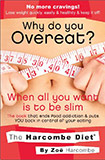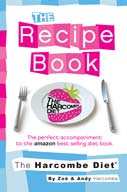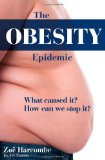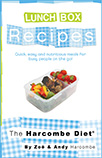 Here’s a great question that I recently had that I thought worthy of sharing the answer with anyone wishing to read it:
Here’s a great question that I recently had that I thought worthy of sharing the answer with anyone wishing to read it:
Q: Hi Zoe, I’m really enjoying the diet but I’m a bit worried that my breath is not the same. I have read that this can be down to a high meat/protein intake, so I have tried to be careful to keep protein consumption down and try to have more carb meals. I feel like I eat a lot of salad and veg and no more meat than I did before the diet, and this has worked to an extent, but it’s still a problem. Any ideas? Thanks
Zoë’s reply:
A) What a great question! Can’t believe I haven’t had that one before. I’ll see if I can do this as one of the footnote articles in Diet & Health Today. In the meantime – here are some thoughts for you…
– The technical name for bad breath is halitosis – you probably know this – but it shows that it is a ‘medical’ condition.
– In the vast majority of cases, Halitosis is a mouth condition. It can be an indication of illness elsewhere in the body – e.g. kidney disease can actually be picked up by a ‘urine like’ smell from the mouth, but 90% of the time – the source of the problem is the mouth itself.
– There are literally millions of bacteria in the mouth – the majority live on the tongue and we rarely clean this. Hence the first option for easing halitosis is to clean the tongue (gently brushing) at the same time as cleaning your teeth. The jury is out on mouth washes – from looking at the evidence I think they will help temporarily but, as they are alcohol based, they will dry the mouth in a short period of time and then make things worse because….
– Saliva is really important – saliva washes away food residue and odours. This is why many people experience morning bad breath. We produce far less saliva at night and, especially if we then sleep with our mouth open, the saliva levels are very low by morning and the odours are free to run wild. Realising that saliva plays such an important role – you do need to make the effort to drink and water is the best option. Even when busy, carry around a bottle of water with you at all times and just sip whenever you can.
– You may do well to schedule the next dental check up and mention this. If there is any gum disease or infection in the mouth – this will be a causal factor. The dentist should be able to pick this up. If you have been having any sore throats or ear/nose/throat illnesses over the winter – this will have changed the balance of the bacteria in the mouth and this could be a causal factor as well.
– Food can be a causal factor. The very low carb (Atkins 20g kind of level) is known to send the body into a state called ketosis, where halitosis is a well known side effect. The Harcombe Diet doesn’t do this – unless the person chooses to go down to a 20g carb level to see if they can end a plateau. Even with a healthy intake of veg and salad, you should not have this problem. Plus you’re having carb meals, so you’re no where near a high protein halitosis cause.
Generally, however, bad breath is NOT caused by the foods we eat. Bad breath occurs when bacteria in the mouth break down left over food particles creating odorous sulphur particles. Yes cabbage or onions can have higher sulphur content causing a temporary odour, but the body is more than capable of neutralising this with good mouth function. You should not need to modify your diet (especially such a healthy one) but the key goal should be to reduce the bacteria in the mouth feeding off whatever you are eating. This can be done with more diligent brushing, flossing, and cleaning of the tongue with a brush – or ideally a tongue scraper.
Zoë.









POST A COMMENT.